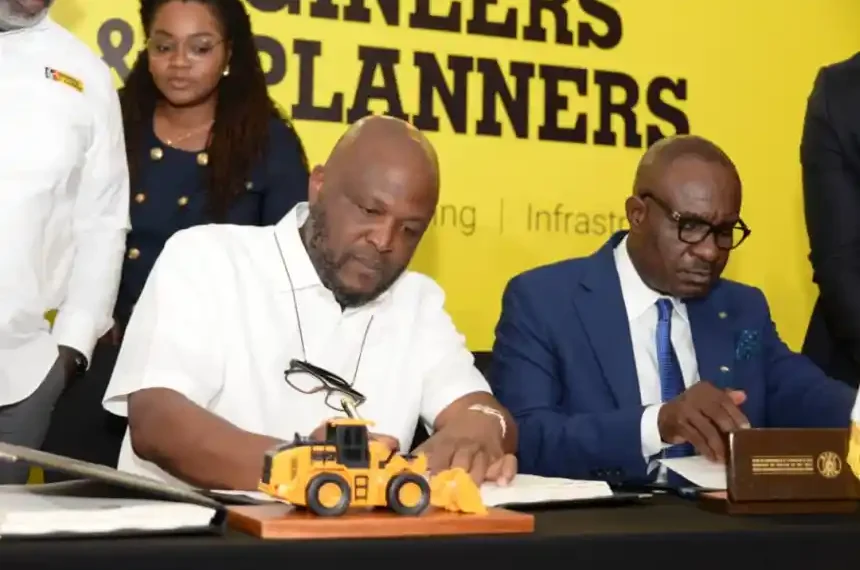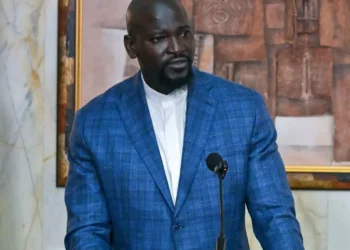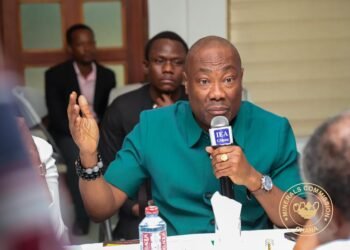The ongoing legal and contractual controversy surrounding Engineers & Planners (E&P), the company owned by Ibrahim Mahama, has once again stirred public interest as political activist and lawyer Oliver Barker-Vormawor offered his insights into the matter.
According to Barker-Vormawor, after reviewing the case details and public commentary, there appears to be no overt wrongdoing by E&P.
In his view, the most that could be critiqued is the wording and legal oversight of the press release issued by the company. He maintained that it would have benefited from legal vetting before being made public.
Delving deeper into the core of the E&P dispute with Azumah Resource, Barker-Vormawor emphasized that it remains a private contractual disagreement between two wealthy entities.
He highlighted that much of the transaction in question occurred before Ibrahim Mahama’s brother, John Mahama, assumed the presidency. This point, he believes, undermines allegations of improper political influence or favoritism.
“I have, over the past few days, taken the time to inform myself about this Azumah and E&P saga. The more I listen to Bright Simon, the more I am unable to exactly pinpoint what the public interest or concern is in a private contractual dispute.”
Oliver Barker-Vormawor
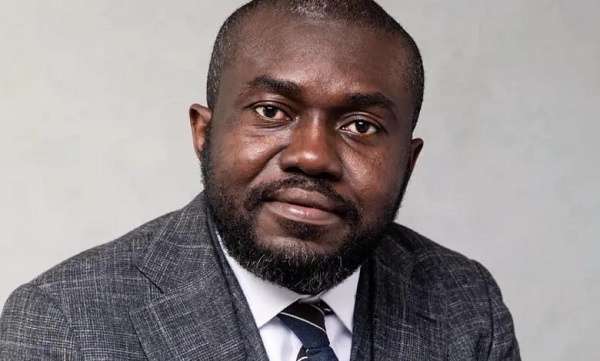
He acknowledged that the financial sums involved are significant and that two well-funded entities are entangled in a bitter contest.
However, he suggested that some actors, including Bright Simons and policy think tank IMANI, may be projecting political angles into what appears to be a corporate disagreement.
He suggested that Bright may be coordinating with the opposing side in the E&P dispute, though he clarified that this was not a judgment on Bright Simons’ intentions or credibility, which he otherwise respects.
E&P Faces Unfair Public Scrutiny
As the issue continues to receive intense public scrutiny, Barker-Vormawor reiterated that businesses tied to public figures often attract disproportionate attention simply because of their affiliations.
He noted that Ibrahim Mahama’s familial connection to former President John Mahama makes his business operations subject to constant public evaluation.
Still, Barker-Vormawor reflected on the difficulty of such a position, adding that while challenging, being the president’s brother carries certain privileges.
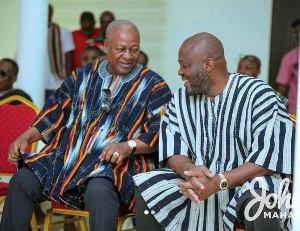
This connection, he implied, makes it all the more necessary for E&P to conduct its business with additional caution.
“I will still prefer to be the President’s brother than his enemy, if you catch my drift. This is why it is in Ibrahim’s interest to be careful of the State.”
Oliver Barker-Vormawor
In an attempt to offer constructive guidance, Barker-Vormawor advised that E&P take proactive steps to avoid further entanglement with state authorities.
He recommended that the company formally request the Ministry to step back from the issue, asserting its nature as a private legal matter.
Further, he suggested that E&P issue a new public statement directly challenging any perceived overreach by government officials in the E&P dispute.
Such a move, he argued, would help safeguard the integrity of the business while reinforcing the boundaries between state authority and private enterprise.

By asserting their independence from political interference, E&P could also address public perceptions and mitigate the controversy surrounding the case.
While opinions remain divided on the matter, Barker-Vormawor’s perspective provides a counter-narrative to prevailing claims of misconduct.
His comments serve as a reminder that not all high-profile disputes require or deserve public or political framing, especially when rooted in private legal disagreements.
As the E&P dispute unfolds, it continues to challenge norms around transparency, political influence, and corporate governance. Whether it escalates or de-escalates may depend on how both parties, and the government, choose to respond in the coming days.
READ ALSO: Celebrities Urged to Welcome Fan Proximity

